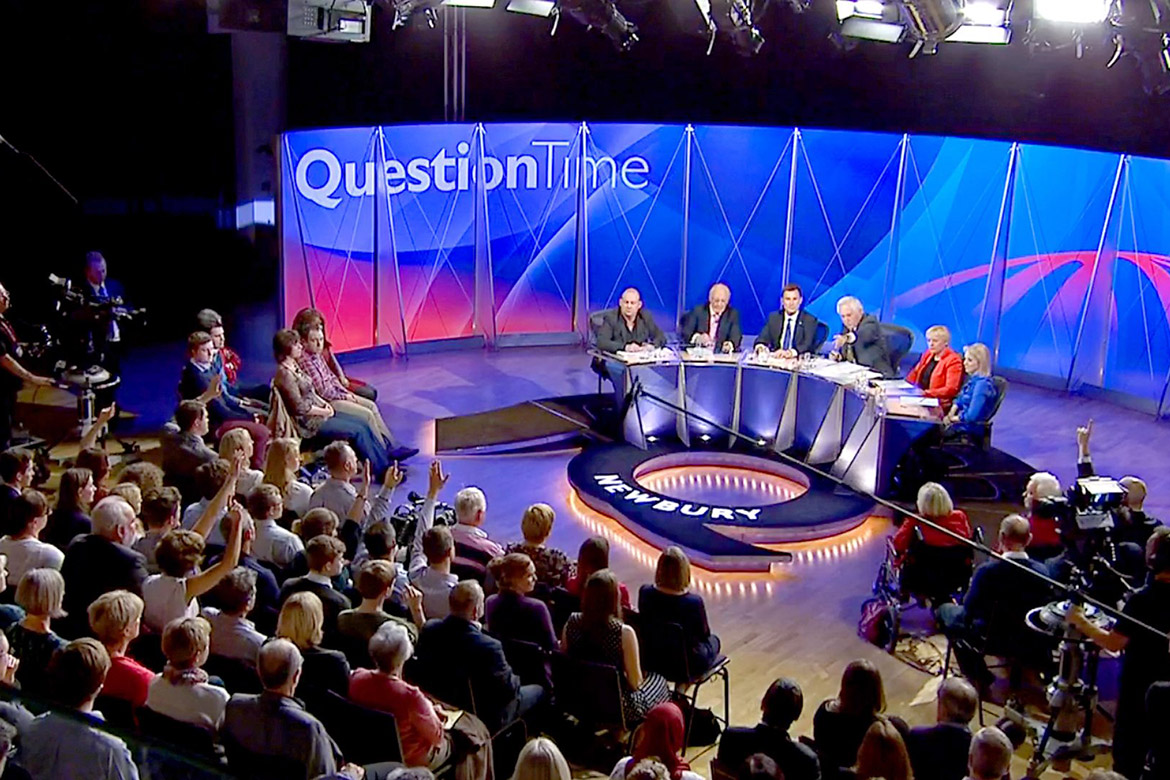LANGUAGE
To reformulate is to improve persuasion
Saying the same thing twice but differently in a discussion can actually convince your audience you’re an expert.

‘Question Time’, a political programme of the British Broadcasting Corporation, is known for its hard-edged discussions and frequent reformulation. | Photo: BBC
Speaker A: “We might say a minister is both optimistic and determined…”
Speaker B: “Inexperienced!” Swiss and Polish researchers have noted that reformulation is one of the most popular – and effective – tools in argumentation. It’s often used to support a point of view, and it is the second most used stylistic device after the inferential relationship, i.e., giving a reason, for example: ‘This candidate should attract the votes, because she is the most competent’. In fact, inference might take second place in terms of persuasiveness. These observations have come from preliminary studies led by Steve Oswald of the University of Fribourg and Marcin Koszowy of the Warsaw University of Technology. Oswald used experimental analysis by subjecting participants to pairs of phrases either with or without reformulation, whereas Koszowy focused on analysing major data compilations, e.g., speeches relating to the 2016 US presidential election.
The researchers have made further observations. According to Steve Oswald, it seems that individuals facing reformulation treat it as a paraphrase (i.e., content identical to the referenced sentence, Ed.), yet they are still persuaded: “This is what makes it an extremely interesting tool in argumentation”. Moreover, it turns out – far from tarnishing the image of speakers – the use of reformulation “bestows the aura of an expert on a speaker”, he says.
The two researchers now aim to map the types and functions of reformulation in natural language, but also to test the rhetorical and persuasive effects so as to propose a comprehensive model of its pragmatic and argumentative aspects. It could potentially be applied to other language processes, e.g., metaphor.




